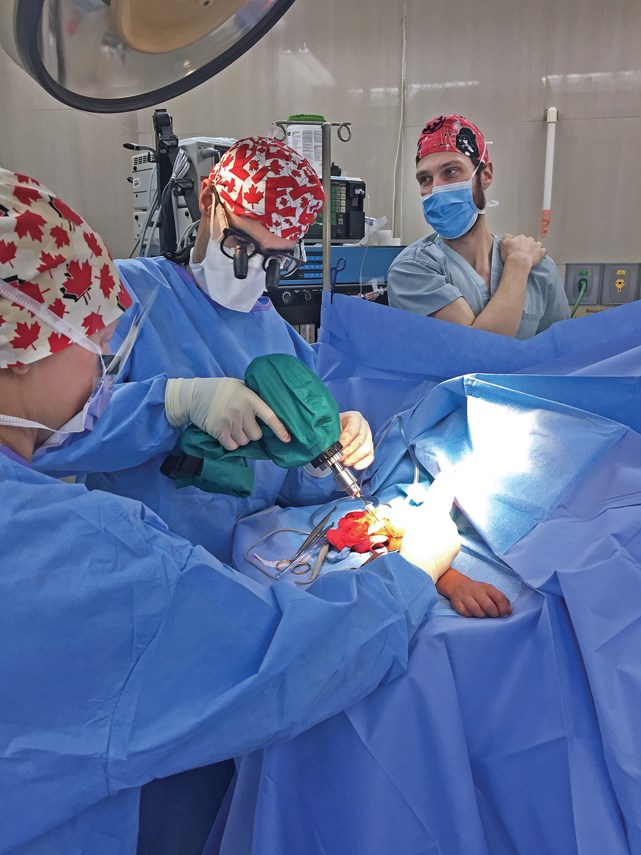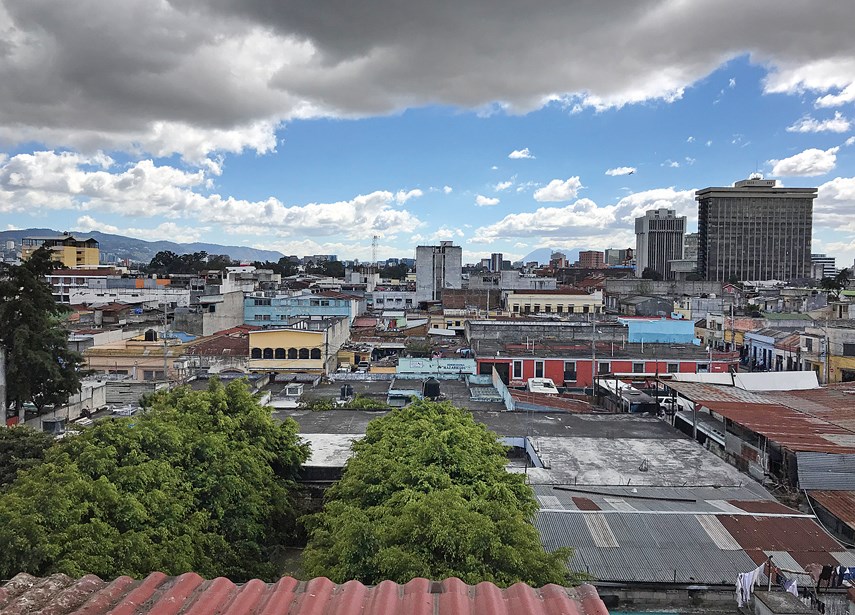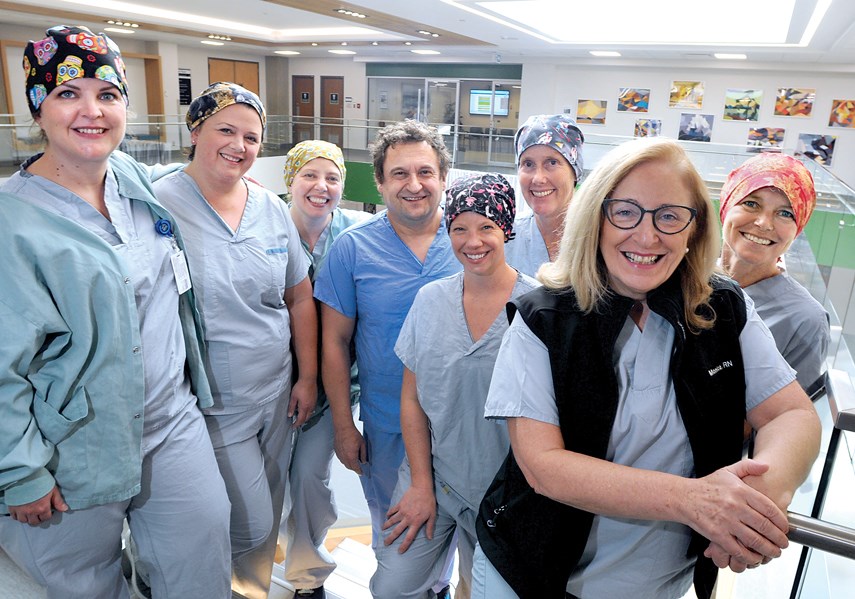It started when the world shook.
A massive earthquake and a series of aftershocks jolted the Haitian capital of Port-au-Prince in 2010.
Both the severity of the seismic shift and the elastic building codes compounded the tragedy, as several apartments and homes, “disintegrated under the force of the quake,” killing or trapping the people inside, wrote Britanica.com research editor Richard Pallardy.
The presidential palace crumpled. The pillars of Port-au-Prince’s 100-year-old Cathedral of Our Lady of the Assumption looked like they’d been shelled. From the parliament to the penitentiary, everything was touched.
More than 3,600 kilometres north in St. John’s Newfoundland, Dr. Andrew Furey decided to offer his help.
With many hospitals unable to function and Port-au-Prince’s recent dead piled in the street or buried in mass graves, Furey arrived alongside his wife, pediatric emergency room doctor Allison Furey, and orthopedic surgeon Will Moores.
There was no undoing the disaster wrought by an earthquake with a 7.0 magnitude, but they were able to help some people. And from that first mission, Team Broken Earth was created. It was also that first mission that inspired Lions Gate Hospital nurse Kristi Lange to get involved.
While she grew up in the Fort Langley area, Lange found herself compelled by the hiking and biking trails of the North Shore mountains and decided to cross the Fraser River for good at the age of 18.
“I’ve essentially been here ever since,” she says.
For the last 12 years she’s spent most of her working life amid the “controlled chaos” of the operating room.
The operating room calls for precision, Lange explains.
“In the OR, no one there can do their job without everyone else,” she says.
It’s systematic and orderly with “just enough of the non-routine stuff,” to keep life exciting, she says.
With Furey’s blessing, Lange put together a team of doctors and nurses for a surgical mission to Haiti after the earthquake.
She refers to her time in country as: “Eye-opening and crazy. And very productive.”
For the last six years Lange has been putting together teams of eager volunteers and organizing the supplies for Team Broken Earth surgical missions.
“Every year I say I’m going to take a break from doing this and then every year, somehow . . . here I am again,” she laughs.
This January, Lange is scheduled to fly back to Guatemala alongside a team of 25 doctors and nurses. “We’re going to be very busy,” Lange says, noting they’ll likely have four surgeons and three operating rooms.

While they’ll be operating out of a private hospital in Guatemala City, the team will primarily be treating patients from the outskirts of the country, Lange says.
“They’re so remote and a lot of them haven’t even been to the next village over, never mind to Guatemala City,” Lange says.
While Spanish is Guatemala’s national language, 21 Mayan languages are also spoken, mostly by residents of the country’s highlands and mountainous regions, as well as Garifuna, a language which has roots in West Africa, the Caribbean, and the West Indies.
While the linguistic diversity can make for communications challenges, health ambassadors search for patients by travelling to villages as well as sending out bulletins through radio waves and flyers.
By the time the medical team arrives the patients have been triaged and put into a database.
“We cover the costs, through our fundraising, to pay for these patients to be brought down to the city,” Lange says, noting most patients live on $2 a day.
“You can imagine the cost associated with a surgical procedure,” she says. “There’s no way they could ever afford it.”

Generally, the health ambassador and a family member accompany the patient to Guatemala City where they’re housed near the hospital for a week.
“They come from very poor villages where hygiene is very limited,” Lange says. “A lot of the homes have open firepits . . . so their lungs are often quite poor which is not ideal when you’re getting an anesthetic.”
After an assessment to ensure the patients are good candidates for surgery, the team prepares for a week of orthopedic, plastic, and general surgeries.
This year, the team is also planning to bring a gynecologist, Lange reports.
“There’s a huge need for that there,” she says.
The days are long and the work is challenging but there are great rewards, Lange says, discussing the gratitude and the kindness of the patients following cleft lip and palate surgeries.
“When you see them after surgery or you see the mom of a child who . . . is malnourished and is really shunned by the community,” she says. “Just one of those patients, it will make you want to go back and do this kind of work.”
Following a 10-hour workday, the team usually has dinner and a debriefing session.
Because the team ranges from old hands to young doctors and nurses who might have never visited a developing country before, it’s important to make sure everyone’s having as good an experience as possible, Lange says.
As organizer, one of her primary responsible is bringing enough supplies to augment the old and basic supplies in the hospital.
Before a mission, her basement is usually packed with medical instruments, gloves, scrubs and everything else a surgical team might need.
“I probably spend as much time organizing this as I do actually working at my paying job,” she laughs.
The team is planning to raise money for next year’s Guatemala trip with a Nov. 17 event at Black Kettle Brewing. They’re hoping to raise $60,000 through ticket sales, donations and a silent auction, Lange says.
“It’s not lost in any administration costs, it’s not lost in paying for miscellaneous things here and there. One hundred per cent goes to paying fees associated with treating these patients surgically and for the supplies that we need,” Lange says.
There are “unbelievable challenges” in Guatemala’s health-care system, Lange notes.
“We certainly aren’t going there to change any of that landscape,” she says. But the team helps patients and helps families and gives back what they can, Lange says.
Most of the team members volunteer for the trip before they’re even asked, Lange says, discussing a radiologist who signed on for the January trip. However, because there’s none of the equipment a radiologist would need, he’ll be working as a surgical assistant.
“That’s the kind of dedication and people that make it special and make me want to keep doing it year after year,” Lange says.
Lange still says she’s planning to take 2020 off, however, she notes that her friends are highly skeptical.



